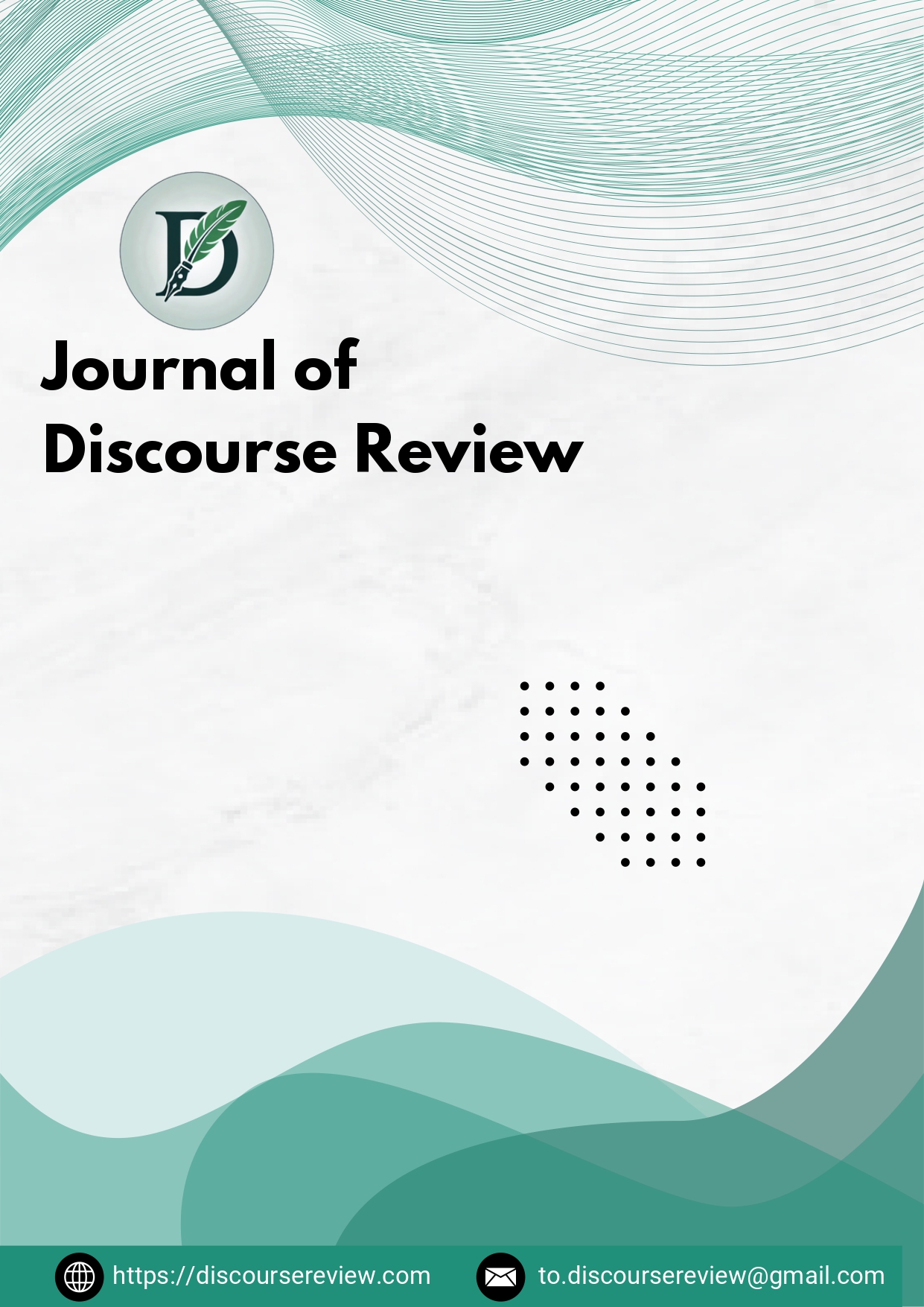
Journal of Discourse Review
Open Access Humanitarian Scholarship
7 days
Time to first decision

Open Access Humanitarian Scholarship
Time to first decision
Volume: 1 Issue: 2
Year: 2025, Page: 191-200,
Received: June 18, 2025 Accepted: June 26, 2025 Published: July 30, 2025
Legal English constitutes a specialized linguistic register distinguished by its formal style, precise terminology, frequent use of Latin expressions, and retention of archaic structures. For law students whose first language is not English, particularly those educated in non-English-medium contexts, the acquisition of this vocabulary presents notable cognitive and linguistic challenges. This study investigates the lexical difficulties encountered by LLB students at Maulana Azad National Urdu University (MANUU), examining how limited lexical competence affects their reading comprehension, academic writing, and overall engagement with legal discourse. Adopting a mixed-methods design, data were collected through a vocabulary test, focus group discussions, and analysis of students’ written assignments. The findings reveal that a significant proportion of participants face persistent challenges in both understanding and accurately applying essential legal terminology. Contributing factors include first-language interference, minimal exposure to authentic legal texts, and a reliance on rote memorization strategies. The paper concludes with pedagogical recommendations for enhancing legal vocabulary instruction in law programs catering to non-native English speakers.
Keywords: Legal English, Lexical Challenges, LLB Students; ESP, Legal Vocabulary, Law Education, MANUU.
Agnihotri, R. K. (2007). Towards a pedagogy of multilingual education. Orient Blackswan.
Bhatia, V. K. (1993). Analyzing genre: Language use in professional settings. Longman.
Bhatia, V. K. (2014). Analysing genre: Language use in professional settings. Routledge.
Bhatia, V. K. (2018). The Indian context. In English, Indian Culture and Identity: Issues and Debates. Asia Pacific Journal of Research. (Note: This citation refers to colonial and postcolonial language debates, accessed via secondary monograph.)
Cabre M. T. (1999). Terminology: Theory, methods and applications. John Benjamins Publishing Company.
Canagarajah, S. (2013). Translingual practice: Global Englishes and cosmopolitan relations. Routledge. Coulthard, M., & Johnson, A. (2010). An introduction to forensic linguistics: Language in evidence. Routledge. Crystal, D., & Davy, D. (1969). Investigating English style. Longman.
Dudley-Evans, T., & St John, M. J. (1998). Developments in English for specific purposes: A multi-disciplinary approach. Cambridge University Press.
Gibbons, J. (2003). Forensic linguistics: An introduction to language in the justice system. Blackwell Publishing.
Haigh, R. (2018). Legal English (5th ed.). Routledge.
Huong, N. T. (2021). Challenges in learning Legal English from students’ perspective at Hanoi Law University. International Journal of Language and Literary Studies, 3(3), 177–188. https://doi.org/10.36892/ijlls.v2i3.675
Hyland, K. (2007). English for Specific Purposes: Some influences and impacts. In J. Cummins & C. Davison (Eds.), International handbook of English language teaching (pp. 391–402). Springer.
Kachru, B. B. (1983). The Indianization of English: The English language in India. Oxford University Press.
Kachru, B. B. (2005). Asian Englishes: Beyond the canon. Hong Kong University Press.
Khan, M. A. (2023). Investigating errors in the written composition of undergraduate ESL learners at Aligarh Muslim University. JL3T: Journal of Linguistics, Literature and Language Teaching, 9(1), 1–8. https://doi.org/10.32505/jl3t.v9i1.6050
Kim, H. Y. (2006). Legal discourse and the linguistic construction of identity: Lawyer-client interactions in South Korea. John Benjamins Publishing Company.
Krashen, S. D. (1982). Principles and practice in second language acquisition. Pergamon.
Krishnam araju, J. M. R. (2024). English for Legal Purposes: A brief history, challenges and remedies for effective use. Journal of Research in Social Sciences and Humanities, 8(46). https://doi.org/10.54850/jrspelt.8.46.003
Laufer, B., & Nation, P. (1995). Vocabulary size and use: Lexical richness in L2 written production. Applied Linguistics, 16(3), 307–322. https://doi.org/10.1093/applin/16.3.307
Lin, A. (2014). Examining the discourses of English language teachers in English-medium instruction contexts: English vs. Englishes. In K. Hyland & L. Wong (Eds.), Innovation and change in English language education (pp. 41–58). Routledge.
Mellinkoff, D. (1963). The language of the law. Little, Brown and Company.
Nation, I. S. P. (2001). Learning vocabulary in another language. Cambridge University Press.
Nuoc, T. H. (2022). Difficulties in Legal English reading comprehension to English-majored students at Hanoi Law University. VNU Journal of Foreign Studies, 38(5), 92–100. https://doi.org/10.25073/2525-2445/vnufs.4789
Schmitt, N. (2000). Vocabulary in language teaching. Cambridge University Press.
Tiersma, P. M. (1999). Legal language. University of Chicago Press.
Williams, C. (2004). Legal English and plain language: An introduction. ESP across Cultures, 1(1), 111-124.
© 2025 JDR Academic Trust. This is an open-access publication distributed under the terms of the Creative Commons Attribution 4.0 International License (CC BY 4.0). https://creativecommons.org/licenses/by/4.0
Khan, M.A. (2025). Lexical Challenges in Learning Legal English: A Case Study of LLB Students at MANUU. Journal of Discourse Review, 1(2), 191-200.